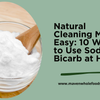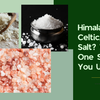Smart Nutrition for Strong Teeth: Choosing Foods That Support Dental Health
- by S R
Smart Nutrition for Strong Teeth: Choosing Foods That Support Dental Health
Good oral health isn’t just about brushing and flossing—it starts with the foods you eat. A nutrient-rich diet can strengthen teeth, protect gums, and reduce the risk of cavities and other dental issues. By making thoughtful choices, you can nourish your body and your smile at the same time.
1. Focus on Protein and Fibre
Protein supports the repair of tissues in the mouth, while fibre helps stimulate saliva production, which naturally protects teeth. Excellent plant-based options include lentils, chickpeas, and beans, which provide both protein and fibre. Nuts such as almonds, walnuts, and cashews are also great—they’re crunchy, low in sugar, and help scrub teeth while you chew.
2. Choose Whole Grains and Nutrient-Dense Flours
Whole grains and flours deliver vitamins and minerals that support oral health, including magnesium and B vitamins. Swap refined grains for options like whole-wheat flour, oat flour, or chickpea flour in breads, pancakes, and baking. These flours are less likely to contribute to rapid spikes in blood sugar, which can impact gum health over time.
3. Incorporate Dried Fruits Wisely
Dried fruits, such as raisins, apricots, or prunes, provide natural sweetness along with antioxidants and iron. While they contain sugar, consuming them in moderation alongside nuts or in cooked dishes reduces the risk of cavities. For example, sprinkle chopped dried apricots or raisins on oatmeal or salads with a handful of almonds.
4. Be Mindful of Salt and Minerals
Salt plays a role in overall health, but excessive intake can impact oral health by affecting hydration and saliva flow. Opt for natural, mineral-rich salts like Himalayan pink salt or sea salt, which provide trace minerals without overloading sodium. Use salt sparingly when cooking, and pair it with nutrient-dense ingredients like lentils and whole grains to maximise health benefits.
5. Hydration and Protective Foods
Water is essential for rinsing away food particles and maintaining saliva production. Crunchy vegetables like carrots, celery, and cucumber also help clean teeth naturally while providing vitamins. Pairing these with nuts or whole grains creates balanced, tooth-friendly snacks.
Conclusion
A diet that supports dental health combines protein-rich legumes like lentils, nutrient-dense flours, natural dried fruits, and crunchy nuts while being mindful of sugar and salt intake. Making small, consistent choices—like swapping refined flours for whole grains, enjoying dried fruits in moderation, and including nuts in your snacks—can strengthen teeth, protect gums, and promote a healthier smile for years to come.





